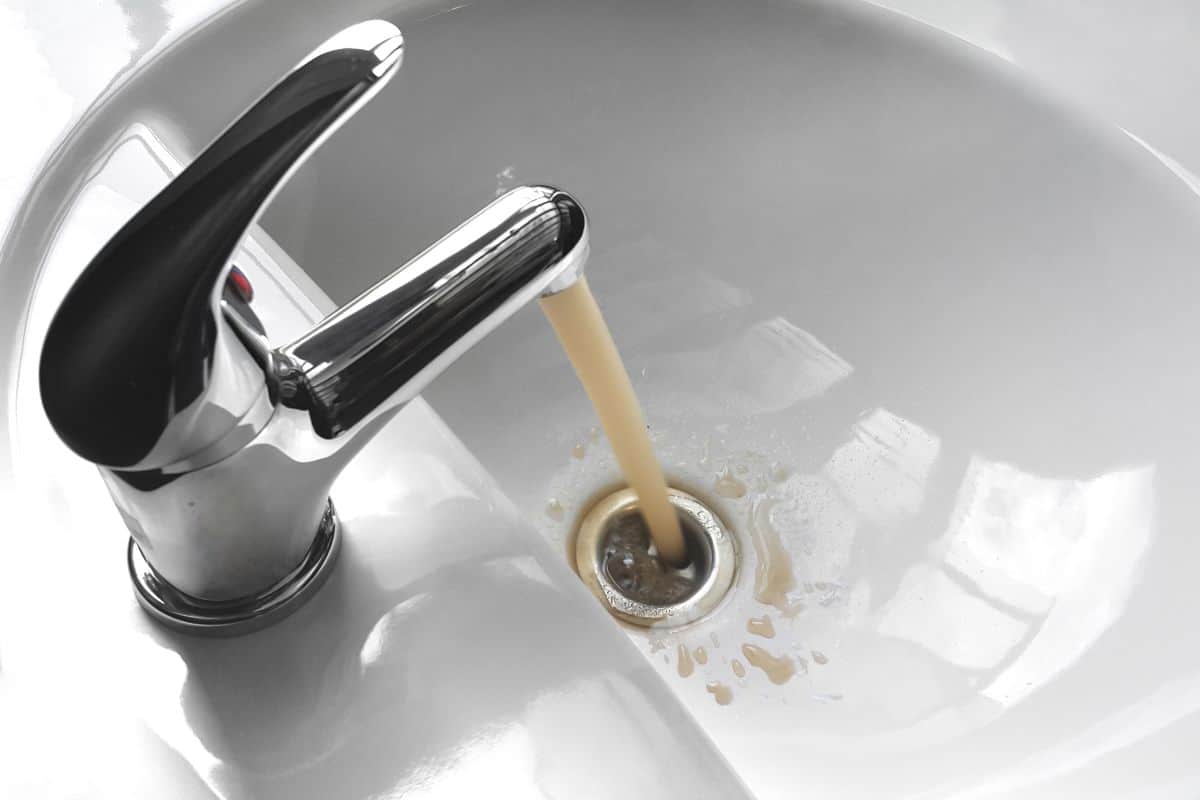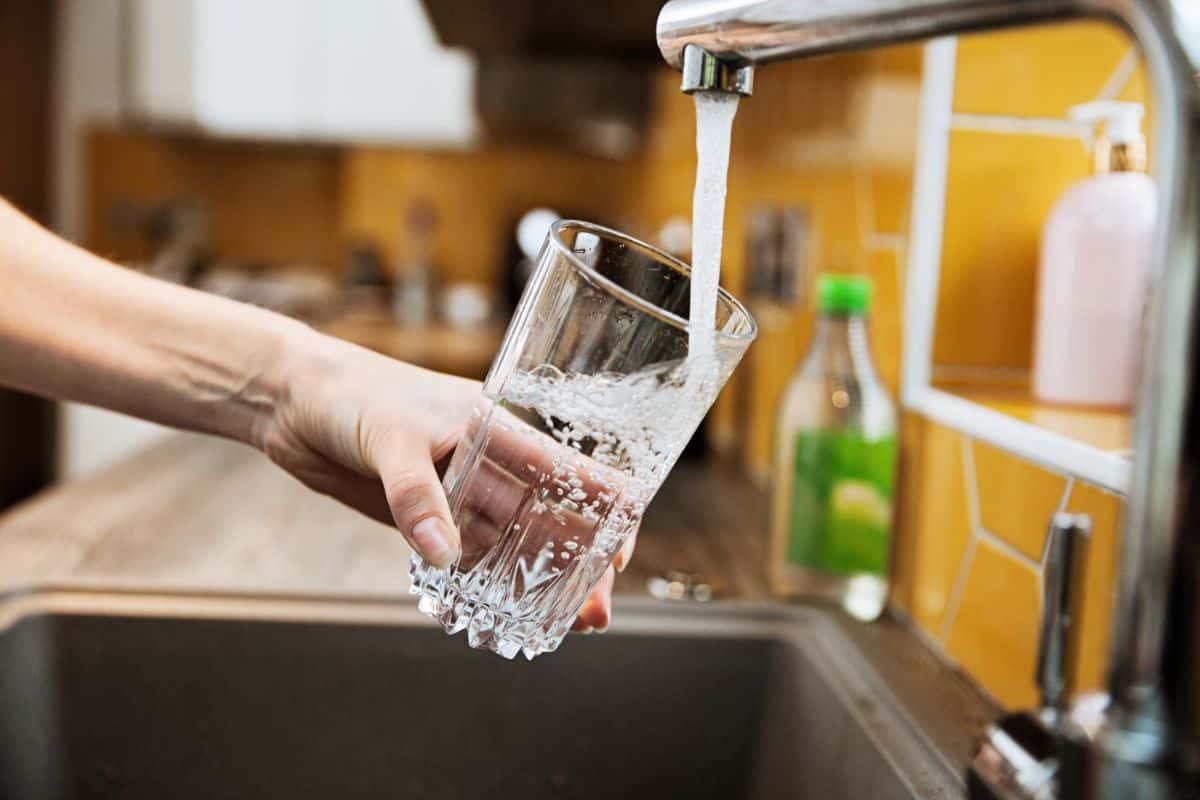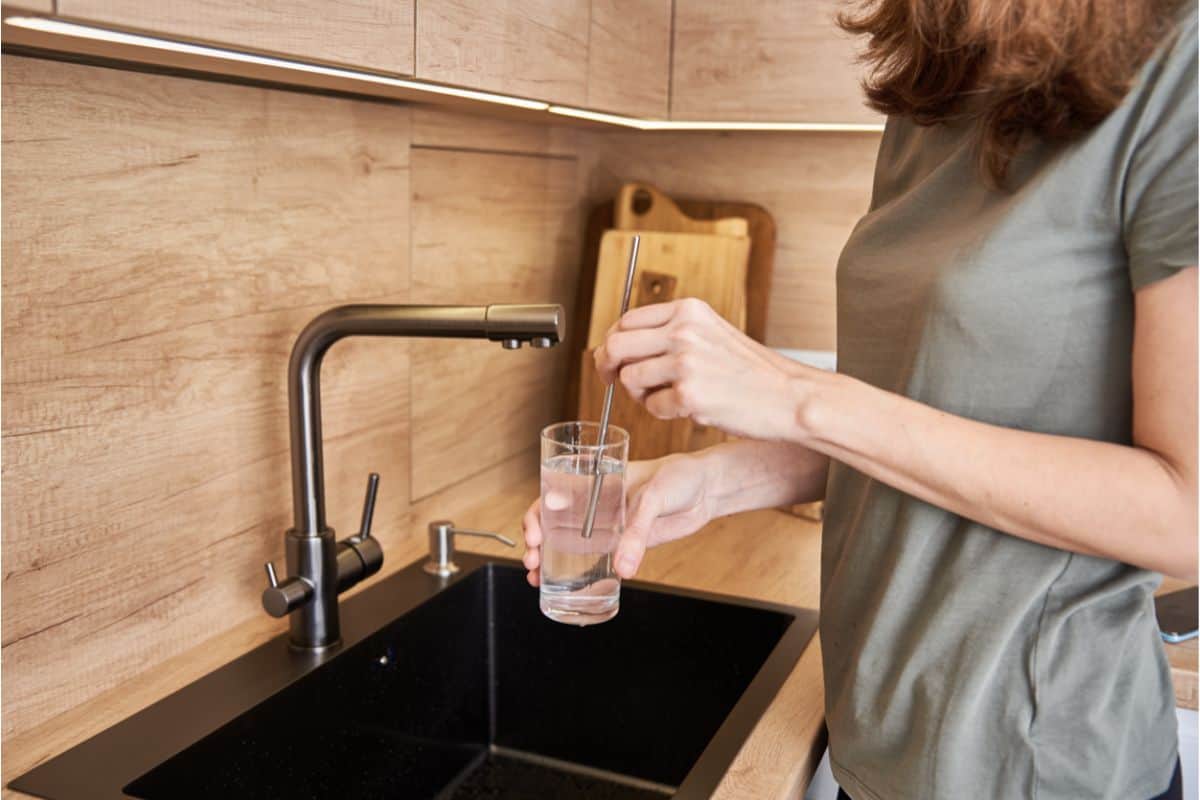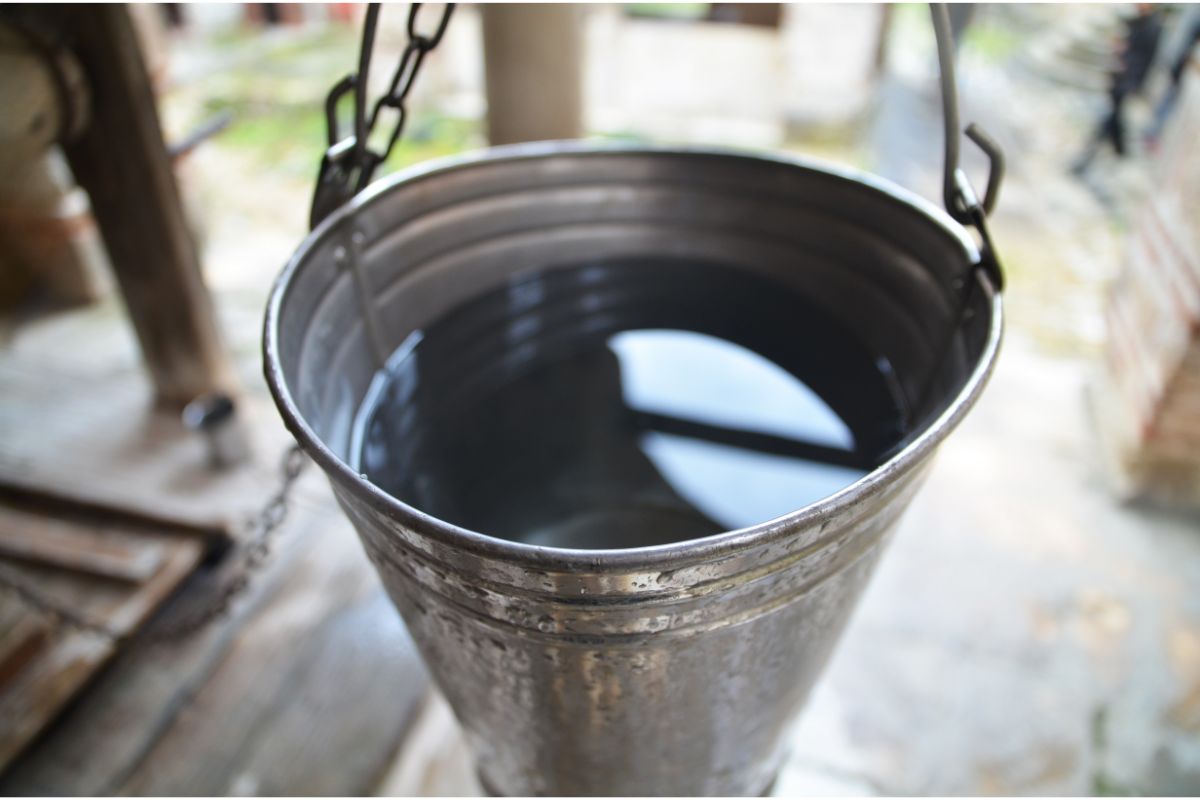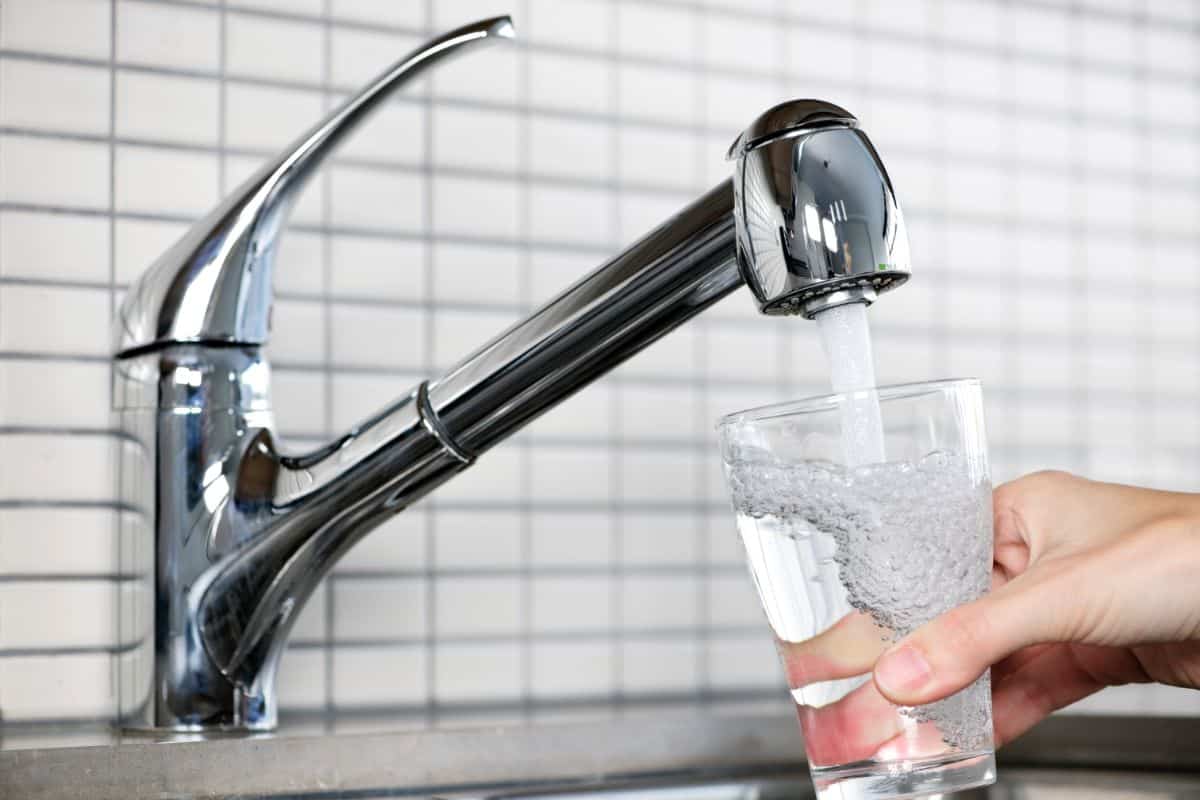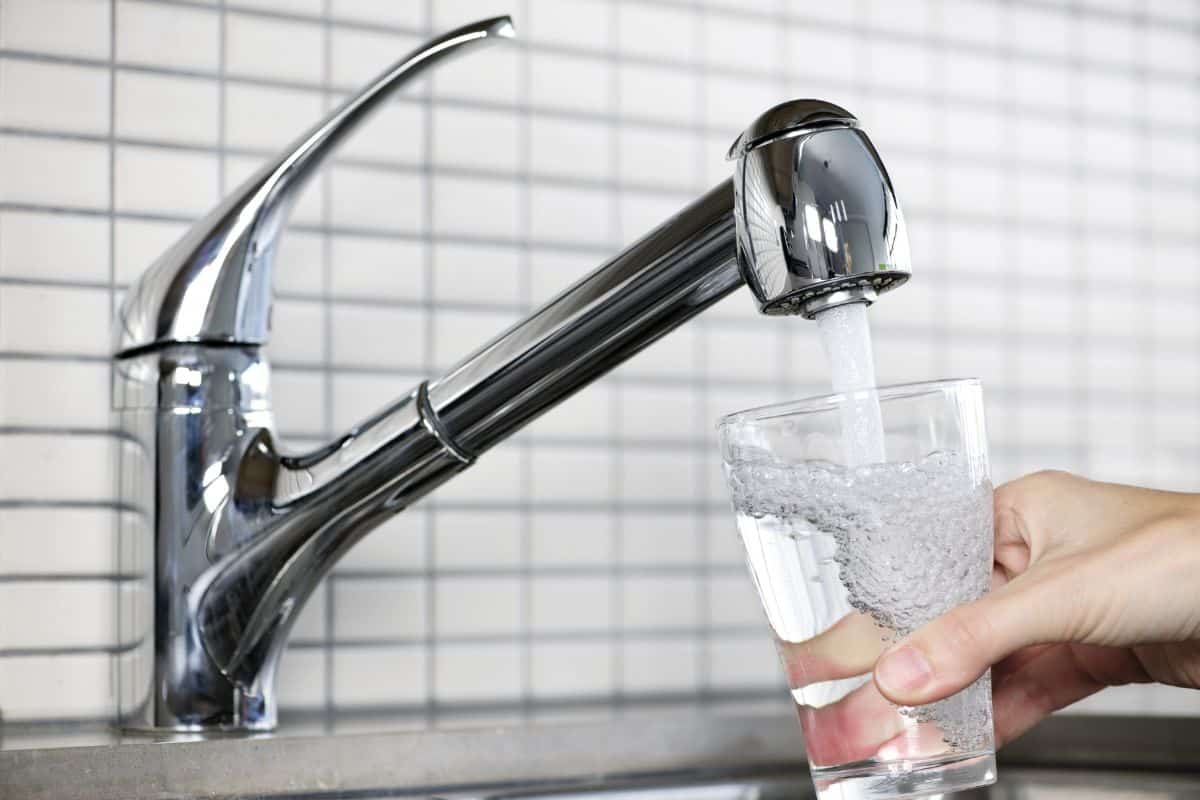Water is vital for all forms of life. Therefore, access to clean and safe water is extremely important.
If you notice your cold water coming out as brown, this could be a sign of unsafe drinking water.
The main reason for brown water is generally the cause of water pipe corrosion. As a water pipe corrodes it begins to peel and enters the water stream, this makes the water turn brown.
Likewise, it could also be the result of an increase in sediments, rust particles, or other minerals found in the pipes.
With this in mind, this article will be tackling the question: why is my cold water brown, looking into possible reasons, and how to remove it?
Contents
Reasons for brown water
Below, you will find the different reasons why you may be experiencing brown water. Read on for further information on how to fix these issues.
Rust
When a pipe starts to corrode, you’ll notice rust. It can be introduced into the water system through pipe leakages or an increase in water pressure – causing the water to turn brown.
By large, there are no real health hazards when consuming rust. While the water may contain a nasty-looking appearance and disgusting smell, it won’t be harmful if you decide to drink it.
However, if you suffer from hemochromatosis, where your body accumulates iron too quickly, then it’s a good idea to avoid drinking more iron from rusty water.
Likewise, while it may be harmless to drink rusty water, that doesn’t mean it’s suitable for long periods. Therefore, replacing your pipes as soon as possible would be the best solution.
Construction projects
Disturbances to the ground from nearby construction projects can influence the color of your water for a small time.
In these instances, you don’t have to worry about the quality of your water. The brown coloring is likely a result of dirt that will pass through once the construction finishes.
Although, if you are worried, you can always contact your local water supplier for confirmation.
New water source
A drastic change in the water source can induce a water crisis, influencing discoloration in the water. A prime example would be the Flint water crisis, ever since a change in water source, there have been massive water disturbances in the flow and contamination of the water.
Hence, if your water source has changed and you notice unpleasant tastes, different colors, or an awful odor, then you should get your water tested.
Excess manganese and iron
An excess of either manganese or iron can influence the color of the water. Since iron naturally occurs in soil, it’s easy to enter your water system. For instance, if you collect your water from a well, then iron may be a common issue contributing to the water becoming brown.
Organic material
Dirt, sediments, and other materials that occur naturally can enter the water supply systems.
If your water main breaks, you experience an increase in water pressure, or if anything else influences the water, then there are chances of the water turning brown.
Upstream pollution
Another factor that can influence your water’s color is upstream pollution. Heavy rainfall can wash away agricultural chemicals such as herbicides and pesticides which can make their way into waterways.
Likewise, surface water and groundwater can also be contaminated by motor oils and other pollutants which can turn your cold tap water brown.
Is brown water safe to drink and bath in?
The presence of brown water dispersing from a faucet is enough to worry any homeowner. This leads you to question the water’s quality and safety when consumed.
So you may be wondering, is it ok to drink brown water? Well, the answer is yes and no. Sometimes, brown water can simply be the result of a nearby construction project which causes disturbances to the underground water pipe.
Although, once the project is finished, you can expect your water to go back to normal.
Although, brown water is usually an indicator that your water supply has become compromised. Therefore, any discoloration in your water should be taken seriously. When in doubt, always contact your local plumbing services.
How to remove brown water?
It is usually recommended that you run the cold water faucets for a few minutes to allow the waterways to clear up. After 24 hours if your water doesn’t clear up, and your neighbors are facing similar problems, then you should seek a solution.
Firstly, you can contact your local water supplier who will look at the whole water system, detecting any issues and influences that are turning the water brown.
Likewise, you can also view the local utility website. Here, you’ll find recent announcements regarding water supply changes and upcoming water supply repairs. On the website, look through any applicable announcements.
If you can’t find any, then call the numbers provided and ask about any temporary disturbances which can impact your water supply.
Moreover, you can determine whether it is the cold or hot faucet being impacted by the discoloration. If the hot water supply is having issues, it typically means that your water heater system needs to be replaced or fixed urgently.
Final thoughts
It is no secret that water is vital to maintain our bodies and keep us fit and healthy. However, what happens when your water turns brown? Several factors can influence the color of your water.
They can change your crystal clear water supply into brown, unappealing water.
While most of the time, brown water isn’t a cause for concern, since the problem will usually resolve itself. If you experience frequent brown water, you should either contact your water supply providers or a plumber to further discern the issues.
Hopefully, this guide has informed you on why your cold water could be brown.
